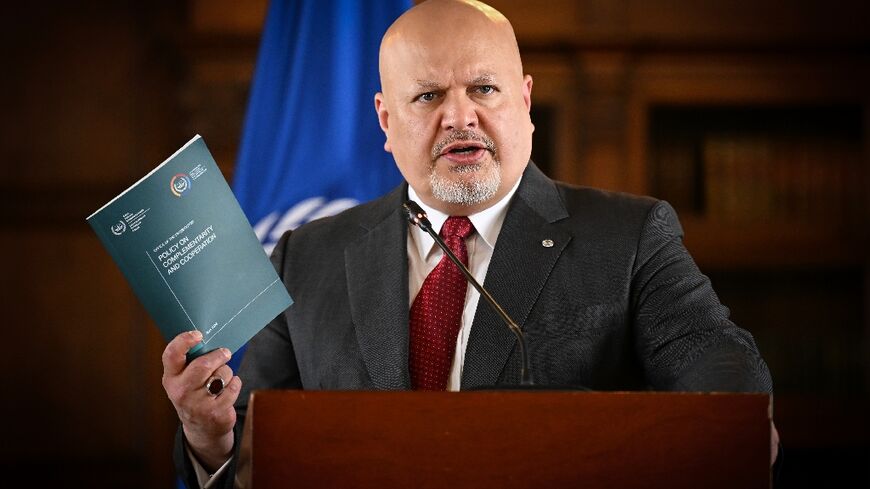The International Criminal Court prosecutor warned on Friday against unspecified threats and intimidation, amid reports that Israel is concerned the tribunal could issue arrest warrants over the war in Gaza.
The Hague-based ICC did not say if the comment related to its investigation into possible war crimes by Israel or Palestinian groups in Gaza and the West Bank.
The office of ICC chief prosecutor Karim Khan said on X, formerly Twitter, that it was aware of "significant public interest" in its activities and said it sought to "engage constructively with all stakeholders."
But it added that the court's "independence and impartiality are undermined, however, when individuals threaten to retaliate against the court or against court personnel.
"Such threats, even not acted upon, may constitute an offence" against the ICC's "administration of justice", it warned, calling for an end to such activity.
Khan's office declined to say where the threats had come from and which investigation was concerned, when questioned by AFP.
US and Israeli media reports have suggested the ICC prosecutor could issue warrants against both Israeli politicians -- including Prime Minister Benjamin Netanyahu -- and Hamas leaders.
Netanyahu said Wednesday on X that the ICC was "contemplating issuing arrest warrants against senior Israeli government and military officials as war criminals".
"This would be an outrage of historic proportions," he said, alleging that the ICC was "trying to put Israel in the dock".
The Axios news outlet has reported that Israel warned Washington it would take retaliatory steps against the Palestinian Authority that could lead to its collapse if the ICC issues arrest warrants.
US members of Congress had also warned of retaliation by Washington, Axios reported.
The United States says it also opposes the ICC probe into Israel's conduct in Gaza, arguing it has no jurisdiction.
- 'Oppose any threats' -
Neither the United States nor Israel are members of the court.

The White House reiterated that position on Friday, while condemning any threats against the ICC.
"We obviously oppose any threats or intimidation to public officials, including ICC officials," White House Press Secretary Karine Jean-Pierre told a briefing.
She said she would not comment on "what could be next and if we would weigh in if they were to move forward" with charges.
In 2020 the administration of then-president Donald Trump targeted the ICC with sanctions over its investigation into Afghanistan. The Biden administration lifted them.
One legal expert said the statement by the ICC's office of the prosecutor (OTP) was likely related to the "ongoing investigation in Palestine" given recent Israeli government statements about "threats to the Palestinian Authority in response to the potential issuance of arrest warrants".
Israel's reported retaliatory steps were aimed at the Palestinian authorities, "not at the ICC or the OTP", said Gabriele Chlevickaite, a researcher at the Hague-based Asser Institute for international law.
However, "some statements by Israeli officials could be interpreted as threatening the OTP officials indirectly and, or, interfering with the investigation," she told AFP.
This would not only be an offence under the court's founding Rome Statute "but a blatant disregard of the rule of law," Chlevickaite added.
The ICC opened a probe in 2021 into Israel, as well as Hamas and other armed Palestinian groups, over possible war crimes in the occupied Palestinian territories.
Khan has said this investigation now "extends to the escalation of hostilities and violence since the (Hamas) attacks that took place on October 7, 2023".
The ICC is the world's only independent court set up to probe the gravest offences by individual suspects, including genocide, war crimes and crimes against humanity.
It has previously issued warrants for national leaders -- most recently Russian President Vladimir Putin over the invasion of Ukraine.


